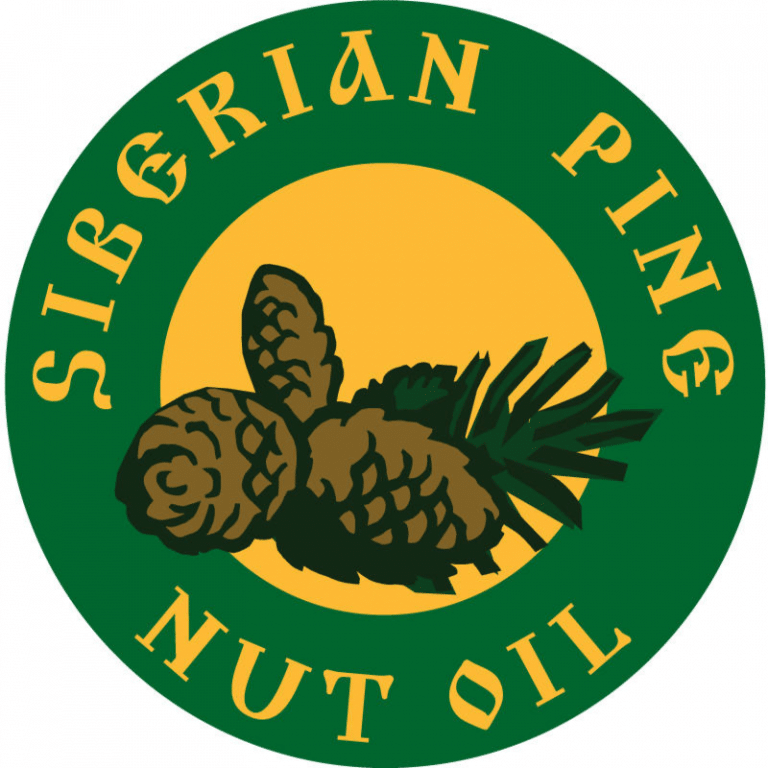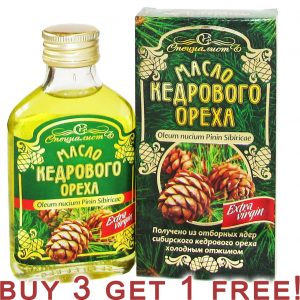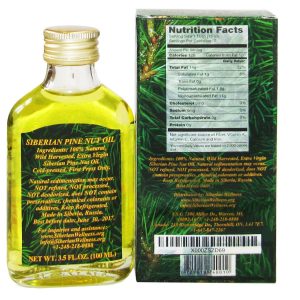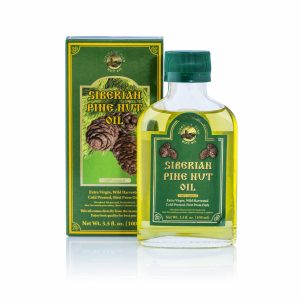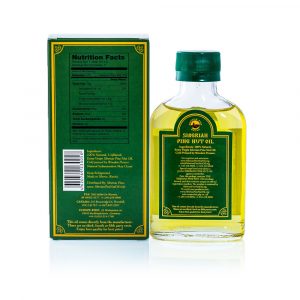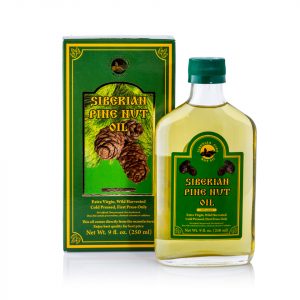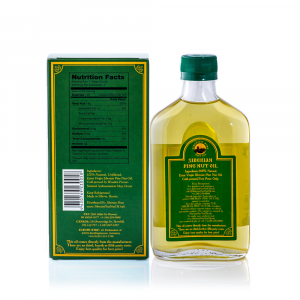The effect of pine nut oil on cholesterol levels
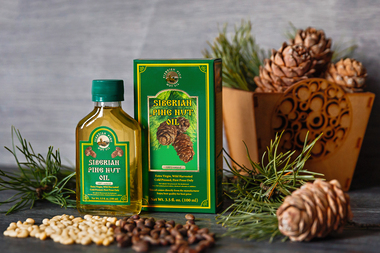
Cholesterol is a natural fat-soluble alcohol found in the body of all living beings. It is part of the cell wall and is involved in the transport of substances into the cell and back. A high level of cholesterol in the blood leads to atherosclerosis. This, in turn, is the cause of severe cardiovascular diseases such as angina pectoris (coronary heart disease), myocardial infarction, cerebral stroke, and intermittent claudication.
Depending on what substances accompany the cholesterol molecule, it is divided into two categories:
- LDL (low-density lipoprotein) is called «bad» cholesterol. As part of low-density lipoproteins, cholesterol settles on the walls of blood vessels, creating atherosclerotic plaques.
- HDL (high-density lipoprotein) is called «good» cholesterol. As part of high-density lipoproteins, fat molecules are transferred from one cell to another, thereby enclosing cholesterol inside the cells, where it is consumed or stored. It is this cholesterol that cleanses the walls of blood vessels from cholesterol plaques and carries cholesterol to the liver, where it is processed into bile components.
Pine nut oil has the ability to reduce the level of «bad» cholesterol in the blood and helps maintain a healthy level of «good» cholesterol, thus being an effective preventive agent for cardiovascular diseases.
Pine nut oil normalizes blood cholesterol levels
A diet rich in unsaturated fats (omega-3, omega-6, and omega-9) is best for lowering LDL levels and building a stock of HDL. Numerous experiments have proven the high efficiency of fatty acids in normalizing cholesterol levels. For example, a large-scale comparative analysis showed that an increase in monounsaturated fatty acids in the diet reduces LDL-cholesterol and triglycerides [1]. Pine nut oil is rich in fatty acids — in particular, oleic acid and alpha-linolenic acid.
Another component of pine nut oil, niacin (vitamin PP), has an important property: its metabolites normalize cholesterol levels. Niacin fights against «bad» cholesterol, while simultaneously increasing the level of «good» cholesterol. With systematic use, nicotinic acid increases the level of «good» cholesterol by 30 percent.
In addition, pine nut oil contains antioxidant vitamins E and A that have a protective effect on small blood vessels. They prevent cholesterol from settling on vessels walls.
Pine nut oil affects additional cholesterol accumulation factors
Risk factors for the accumulation of «bad» cholesterol are diabetes, overweight, and nervous strain. Pine nut oil is a preventive agent for all these conditions. Thus, it has not only a direct, but also an indirect effect on cholesterol levels.
- Diabetes
Fatty acids improve blood and liver lipids and insulin sensitivity. Magnesium and lecithin that are also found in pine nut oil, contribute to the production of insulin. - Overweight, obesity
Pinolenic acid (PLA) from pine nut oil has a number of beneficial effects on body weight and reduces fat deposition. Another type of acid with similar properties is siadonic acid that is also found in pine nut oil. [2] The experiment showed that pine nut oil affects the gene receptors PPAR-γ and SREBP-1c that are directly related to the accumulation of adipose tissue and body weight.[3] - Nervous tension
It has been proven that disorders of the nervous system can lead to vasospasm and the accumulation of «bad» cholesterol. Pine nut oil is rich in zinc and magnesium, minerals necessary for the normal functioning of the entire nervous system. In addition, Omega-3 is important for the prevention of nervous tension. Its ability to normalize the emotional background is so significant that it is used as a non-drug remedy to combat depression. [4]
Thus, pine nut oil has a positive effect on cholesterol levels both directly and indirectly, reducing risk factors. Therefore, pine nut oil is an excellent prophylactic agent for most diseases of the cardiovascular system.
REFERENCES
[1] Grundy SM, Florentin L, Nix D, Whelan MF. Comparison of monounsaturated fatty acids and carbohydrates for reducing raised levels of plasma cholesterol in man.
[2] Baker EJ, Miles EA, Calder PC. A review of the functional effects of pine nut oil, pinolenic acid and its derivative eicosatrienoic acid and their potential health benefits.
[3] Jin SC, Kim MH, Choi Y, Nam YK, Yang WM. Fat regulatory mechanisms of pine nut oil based on protein interaction network analysis.
[4] Appleton KM, Sallis HM, Perry R, Ness AR, Churchill R. Omega-3 fatty acids for depression in adults
These articles come directly from researchers and are passed on to everybody. siberianpinenutoil.org assumes no liability for any content in these articles. For Educational purposes only. This information has not been evaluated by the Food and Drug Administration. This information is not intended to diagnose, treat, cure, or prevent any disease.
Unique Siberian Pine Nut Oil 3.5 fl. oz. (100 ml)
Original price was: 42.65$.24.95$Current price is: 24.95$.Unique Siberian Pine Nut Oil 8.75 fl. oz. (250 ml)
Original price was: 97.20$.58.80$Current price is: 58.80$.We are ready to deliver pine nut oil:
501 W Main St, Knoxville, TN 37902
+1-855-218-0888
info@siberianpinenutoil.org
